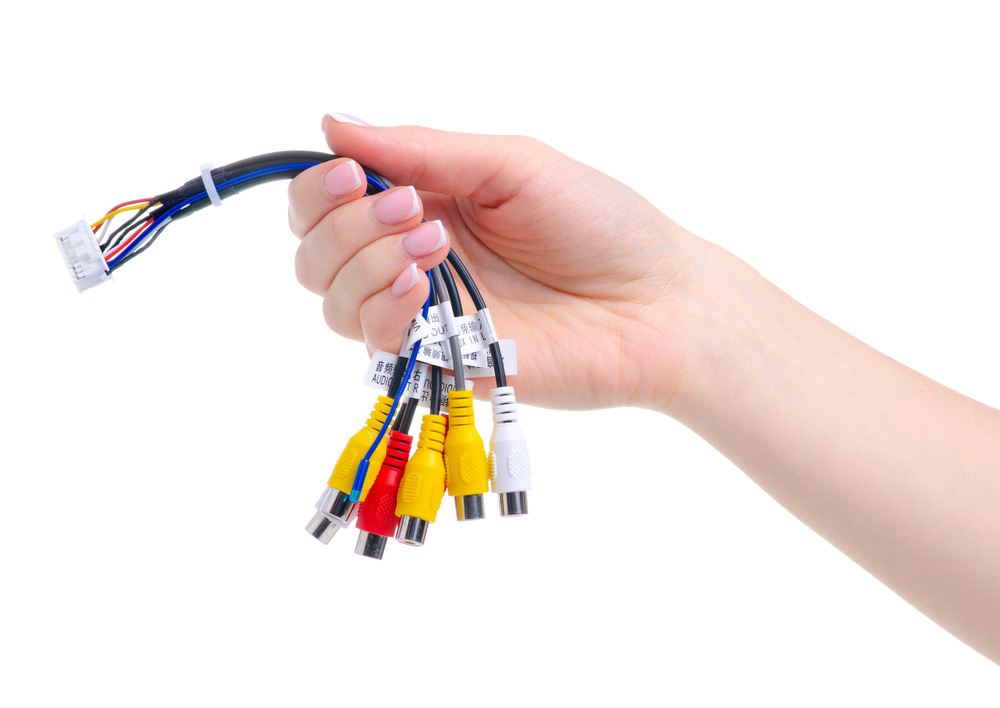Speaker wires are used to make a connection between speakers with amplifiers and radios. They transfer electricity to the speakers efficiently. The quality of your car wire brand might have a significant impact on how well your speaker performs. A poor speaker will degrade the quality of your audio output.
Various types of cables are available on the market nowadays. Understanding which type is ideal for your application is critical. Wiring repairs can be complex, especially when identifying damaged connections and broken wires. Using the wrong wire can potentially cause damage and even a fire outbreak.
What Is the Best Car Audio Speaker Wire?
The best speaker wires for automobile audio, in general, are those particularly intended for that purpose.
When picking speakers for the finest sound quality, speaker wire resistance should take precedence over speaker wire gauge. However, speaker wire resistance varies with speaker wire length and output power.
Because of the higher speaker wire resistance in the same wire volume, a 16-gauge speaker wire can have up to 50% more resistance than an 18-gauge speaker wire at the same length. Speaker wire resistance increases by 9%, and speaker watts drop by around 6% when speaker power is doubled.
As a result, while selecting the best car speaker wire, speaker wire length should be considered to guarantee that the speaker output power requirements are met. And as a general guideline, total wire resistance should not exceed 5% of the speaker’s impedance.
How Do I Pick the Right Wire for My Car Speakers?
Make sure your car speaker wires convey adequate power from the amplifier to the speakers if you want them to survive a long time and sound well. Internal wire resistance varies by cable, and if wires are excessively thin, they might overheat and burn out.
Use 16 gauge or thinner wires for amps that generate more than 150 watts RMS per channel as a rule of thumb. A car speaker wire should be at least 12 gauges thick with that much power for the best results. Otherwise, they will be unable to carry enough energy to your car speakers.
A greater size equals less resistance, which translates to improved performance. Also, keep in mind that longer cables are frequently associated with increased resistance. So, shorter wires may be preferable.
However, when linked to inexpensive speakers or other car audio components, the potential is reduced. If you’re on a budget, spending more money is pointless
Choosing the Best Car Speaker Wire Brand
To choose the best car speaker wire brand, you should pay attention to some key features of the speaker wire. The first thing you must consider is their flexibility, as this will make it easy to work with. Car speaker wires that can work with an amplified system placed at the bottom of the trunk will give your system a nice, organized look.
The best car wire speaker brand uses oxygen-free copper, thicker and heavier than the typical car speaker wires and more durable. The additional OFC shielding used by reputable brands reduces noise from surrounding electrical sources like the battery or engine.
Choosing the Right Gauge of Automobile Audio Speaker Wire
One rule for car speaker wires is never to utilize wiring designed for homes in automobiles. Heat, vibration, and chemical exposure will be too much for it. The solid wire should never be used for cars.
Vehicle wiring should be adaptable. It is appropriate for both industrial and domestic applications. Here are some guidelines to assist you in selecting the best car speaker wire.
Wire Materials
Your automobile speaker audio cable’s composition is as crucial as its gauge. For electrical uses, copper is the best material. Because copper is expensive, several alternatives, such as aluminum and copper-clad aluminum can be used. The two types of wire are OFC (Oxygen Free Copper) and CCA (Copper Clad Aluminum).
When compared to aluminum, copper is a greater conductor of electricity. Furthermore, aluminum corrodes and undergoes electrolysis naturally, making it more difficult to transmit electricity properly. Electrolysis occurs if your wire is covered in a whitish powder. This process also happens in copper, resulting in a green shade to the wire.
Choosing the Appropriate Size
Sizing is one of the most important aspects to consider while buying wire. The length and thickness of the automobile radio speaker wire influence the amount of current it can carry. Although signal wires do not need to be large, primary power lines such as alternators and heavy draw wires do.
The voltage drop is expected in wiring. The usual primary wire for automobiles is 18 gauge. It is, however, only for signal wire applications and not for high-current applications. Therefore, wider gauge cables are required.
Conductivity
Oxygen-Free Copper (OFC) is the most outstanding alternative for car speaker wires and is an excellent conductor of electricity. Because OFC cables offer sufficient power to amplifiers and speakers, you can expect exceptional audio sound in your automobile audio systems.
The OFC is the ideal automobile speaker wire because it can withstand heat and moisture within the engine bay. OFC cables have a small quantity of tin in their composition. In the long run, this helps to prevent cable corrosion.
The Strand Count
There are two key advantages to adopting individual strand wire over the solid wire. A single conductor is made up of individual wire strands braided together. The number of separate strands braided together is the strand count. When choosing your car stereo speaker wire, consider the strand count.
Durability
Individual stranded wires are more resilient and long-lasting compared to solid wires. Due to the multiple strands, you may not experience a substantial loss of power transfer in the event of a wire cut. On the other side, if one wire is severed for solid cables, the power handling will be reduced.
Finally, with these tips, you can find the best car speaker wire. We manufacture high-quality car speaker wires and ship worldwide. Please, fill out the contact form for more information or to place your order


